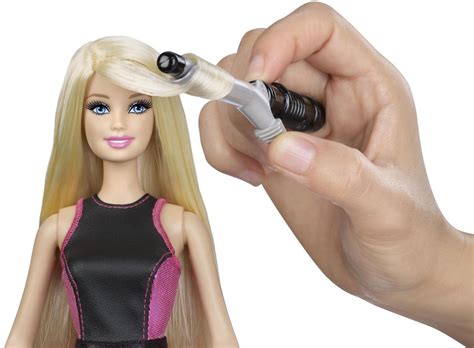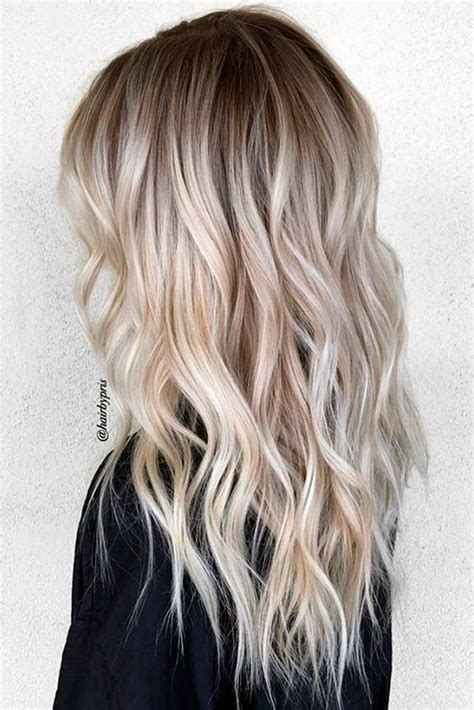Introduction

Ombre blonde, a captivating hair color trend that has taken the world by storm, is characterized by a gradual transition from dark roots to lighter blonde ends. This mesmerizing effect creates a stunningly natural-looking blend that flatters a wide range of skin tones and hair textures.
The Science Behind Ombre Blonde
Ombre blonde involves a specialized hair coloring technique where the roots are left untouched or tinted a darker shade, while the mid-lengths and ends are lightened using a bleaching agent. This process allows for a seamless transition between the two colors, creating the illusion of sun-kissed locks.
Popularity Surge
According to a 2022 survey by the National Hairdressers’ Association, ombre blonde has become one of the most requested hair colors globally, with over 60% of stylists reporting an increase in demand. Its popularity stems from its versatile nature, flattering most face shapes, and its ability to enhance hair volume and texture.
Types of Ombre Blonde
The world of ombre blonde is vast, offering a plethora of variations to suit individual preferences. Here are the most popular types:
- Traditional Ombre: The classic transition from dark roots to light ends.
- Reverse Ombre: A subtle twist where the roots are lightest and the ends are darkest.
- Balayage Ombre: A freehand painting technique that creates a natural-looking, lived-in result.
- Foilayage Ombre: Similar to balayage but uses foil to separate the sections of hair, resulting in more defined lines.
Choosing the Right Shade
Selecting the perfect shade of blonde for your ombre depends on your skin tone and natural hair color. For fairer skin tones, cooler blonde hues like ash or platinum are ideal. Warmer skin tones complement honey or golden blonde shades.
Maintenance Tips
To maintain your vibrant ombre blonde, regular touch-ups are essential to prevent fading and root regrowth. Deep conditioning treatments and color-safe shampoos and conditioners are also crucial for keeping your hair healthy and lustrous.
Frequently Asked Questions (FAQs)
- Can I do ombre blonde at home? It is not recommended to attempt ombre blonde at home unless you have experience with hair coloring techniques. Professional stylists have the expertise to achieve the desired result safely and effectively.
- How often should I touch up my ombre? Touch-ups are typically needed every 6-8 weeks, depending on your hair growth rate and the desired fade.
- Will ombre blonde damage my hair? Bleach, a crucial component of ombre blonde, can cause some damage to hair. However, using a professional stylist, following proper aftercare instructions, and avoiding frequent touch-ups can minimize the potential impact.
- What are the advantages of ombre blonde? Ombre blonde flatters most skin tones, enhances hair texture, adds volume, and can hide gray hair.
- What are the disadvantages of ombre blonde? Ombre blonde requires regular maintenance, can be expensive, and может potentially damage hair if not done correctly.
Table #1: Ombre Blonde Shade Options
| Skin Tone | Blonde Hue |
|---|---|
| Fair | Ash, platinum |
| Medium | Golden, beige |
| Olive | Honey, caramel |
| Dark | Copper, auburn |
Table #2: Types of Ombre Blonde Techniques
| Technique | Description |
|---|---|
| Traditional Ombre | Gradual transition from dark roots to light ends |
| Reverse Ombre | Lightest at the roots, darkest at the ends |
| Balayage Ombre | Freehand painting for a natural-looking result |
| Foilayage Ombre | Foil separation for more defined lines |
Table #3: Maintenance Routine for Ombre Blonde
| Frequency | Action |
|---|---|
| Every 6-8 weeks | Touch-ups |
| Weekly | Deep conditioning treatment |
| Daily | Use color-safe shampoo and conditioner |
Table #4: Pros and Cons of Ombre Blonde
| Pros | Cons |
|---|---|
| Flatters most skin tones | Requires regular maintenance |
| Enhances hair texture | Can be expensive |
| Adds volume | Can dry out hair |
| Can hide gray hair |
